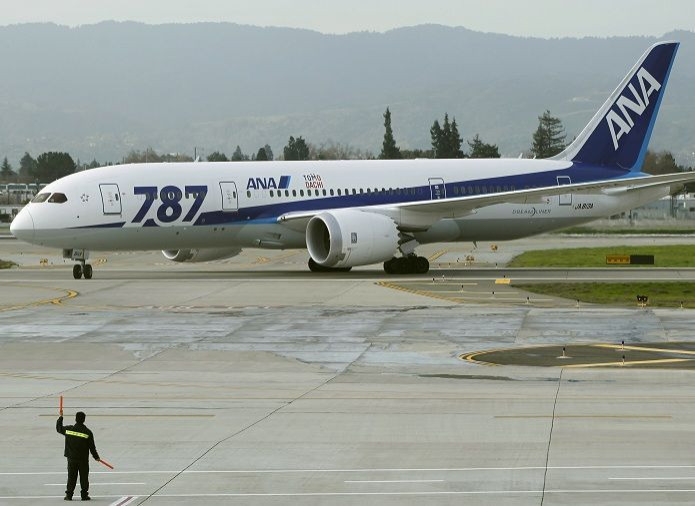Possible Boeing 787 Dreamliner Fire Hazard Rekindles Concern Over Lithium-Ion Fire Risk In Air Travel

The grounding of the Boeing 787 Dreamliner due to battery fire risk has brought attention back to an issue that never really went away, after a series of manufacturer recalls of laptops in the mid-2000s brought widespread attention to the risk, however slight, of smoking or flaming lithium-ion batteries.
The issue fell out of attention even though the risk never completely went away, despite improved measures to prevent the causes of battery fires, such as overcharging, software glitches or physical defects. Today, some pilots are still questioning whether passengers should be putting these batteries in their checked luggage.
"My colleagues and I have been concerned with these batteries even before the UPS 747 crash," said a pilot who flies the massive Airbus A380 double-decker for a major international airline, referring to the crash of a Boeing 747-400 cargo plane near Dubai International Airport on Sept. 3, 2010. The plane’s two pilots perished in the accident, linked to an onboard fire. Aviation authorities are still investigating the cause of the fire, but the plane was carrying a large cache of lithium-ion batteries.
The pilot, who couldn’t speak on the record, said the concern isn’t for the batteries people bring into the cabin to run their laptops and mobile phones, but rather “those that passengers carry in their luggage.”
The International Air Traffic Safety Board estimates that more than a billion lithium-ion batteries are carried on planes worldwide every year. Following a series of high-profile battery recalls from Lenovo Group Limited (HKG:0992), Nokia Corporation (NYSE:NOK) and Sony Corporation (NYSE:SNE), the U.S. Department of Transportation said in 2008 that passengers can carry these batteries on planes as long as they are attached to the devices they power—mainly to prevent people from loading up a large number of batteries in their bags, which would greatly increase the risk of overheating and fire.
The recent grounding of the 787 Dreamliner after two incidents this month, one with All Nippon Airways (TYO:9202) and another with Japan Airlines Co. Ltd. (TYO:9201), both linked to the plane’s on-board batteries catching fire, has raised the specter of the potential hazard as it did five years ago.
The investigation has yet to identify the precise cause of the battery fires, but the grounding of the model’s fleet in commercial service, which numbered 49 at the start of last year, shows investigators and The Boeing Company (NYSE:BA) are taking the matter seriously—perhaps more seriously than Japan, which eased safety regulations in 2008 to expedite the introduction of the plane because it features technology innovated there, according to a Reuters exclusive published Monday.
Japan's Civil Aviation Bureau reportedly eased certification standards and blocked a mandate for increased inspections of new aircraft. About 35 percent of the Dreamliner’s components are supplied by Japanese firms. The easing of these rules had nothing to do with the batteries, the report points out, but underscores the close relationship among Boeing, the government of Japan and the country’s top carriers.
© Copyright IBTimes 2024. All rights reserved.






















